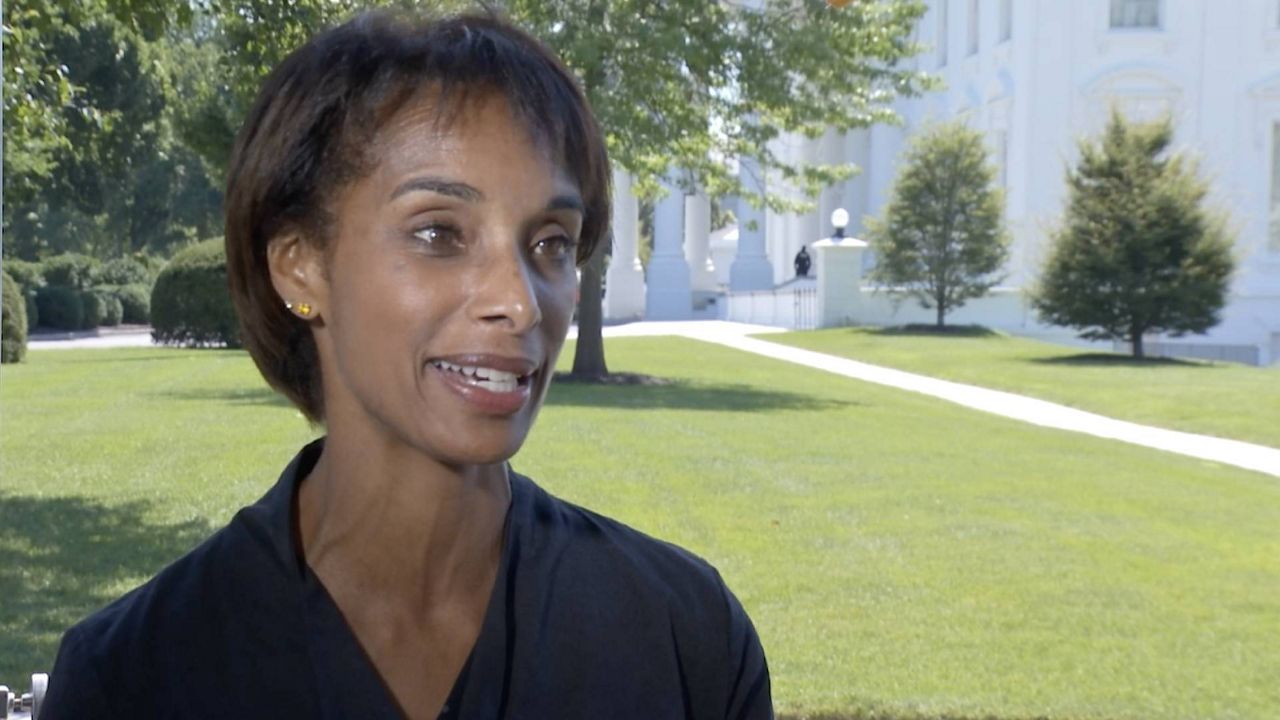A top White House economic adviser indicated that high inflation could persist next month and in the months ahead after a key metric published Wednesday showed prices at another 40-year-high, though she insisted that other U.S. economic indicators are strong.
Council of Economic Advisers Chair Cecilia Rouse told Spectrum News in an interview that while the Consumer Price Index report showing a 9.1% increase from last year does not fully reflect the drop in gas prices in late June, she couldn’t guarantee better numbers in next month’s report.
“I hesitate, given the link between Russia's war against Ukraine — so therefore, international gas prices and inflation — because fuel prices, energy prices are not only at the pump, but they also seep into other measures in the core,” she said.
Oil prices not only impact drivers but also things like shipping as well as the production of goods used in construction, plastic packaging and more.
“We certainly hope we will see better CPI numbers next month,” Rouse added. “There's a lot of reason for optimism. But there's also a lot of uncertainty in our economy right now.”
President Joe Biden called the CPI report “out-of-date” in a Wednesday statement.
"Energy alone comprised nearly half of the monthly increase in inflation," Biden wrote. "Today’s data does not reflect the full impact of nearly 30 days of decreases in gas prices, that have reduced the price at the pump by about 40 cents since mid-June. Those savings are providing important breathing room for American families. And, other commodities like wheat have fallen sharply since this report."
Biden also made the case that so-called "core inflation," which excludes more volatile items like food and energy, "came down for the third month in a row" to below 6% for the first time since last year. The president kicked off a trip to the Middle East this week, during which he will meet with Saudi Arabia’s leader and is expected to bring up the topic of boosting oil production.
Moving forward, Rouse said, oil prices are likely to keep declining, but that doesn’t guarantee immediate relief, partly because the war in Ukraine and the resulting bans on Russian energy exports are ongoing.
“We expect oil prices to come down. But look, we don't have a crystal ball at the moment,” she said. “That's largely tied to the war against Ukraine. And that is uncomfortable to try to predict really where that's going.”
Rouse and other senior administration officials have highlighted the necessity of helping Ukraine as it fights off the “unprovoked” Russian invasion.
She said Wednesday’s CPI report is just one part of the economic picture.
“These data reflect a point in time, which is June,” Rouse said.
And asked if Americans should worry about a recession, she pointed to key economic data besides inflation, such as the strong labor market and industrial production.
“They remain strong, relative to where we were pre-pandemic. But look, we know that we have, we face challenges ahead. But our economy is well-positioned to face them head on,” she said.



